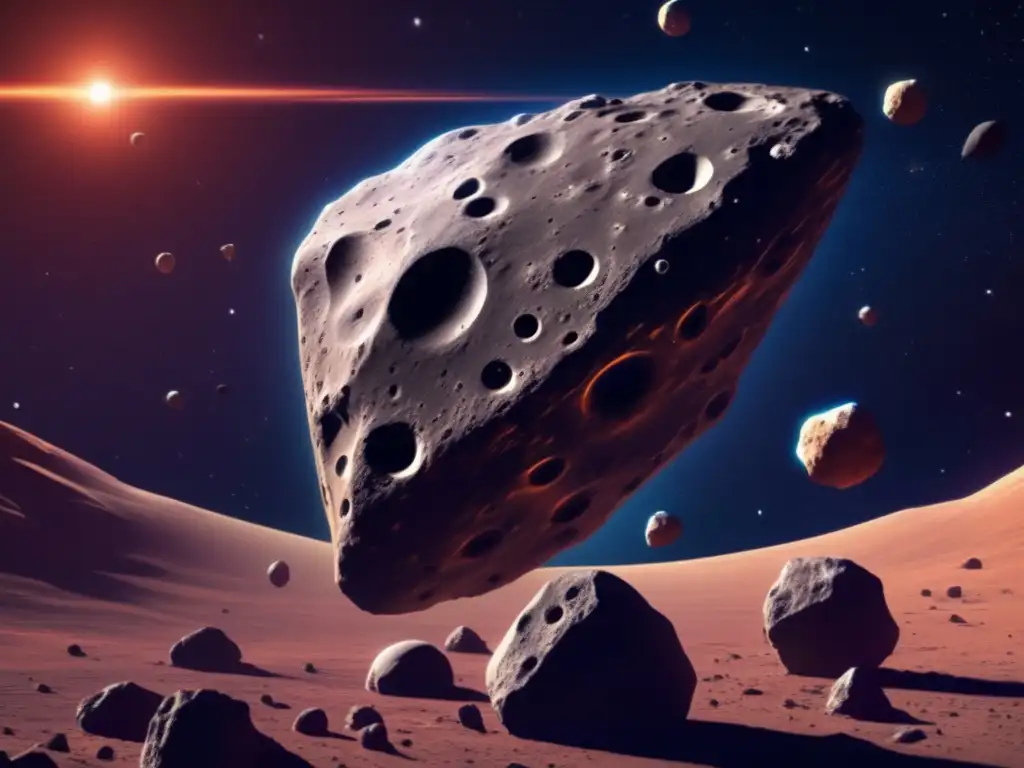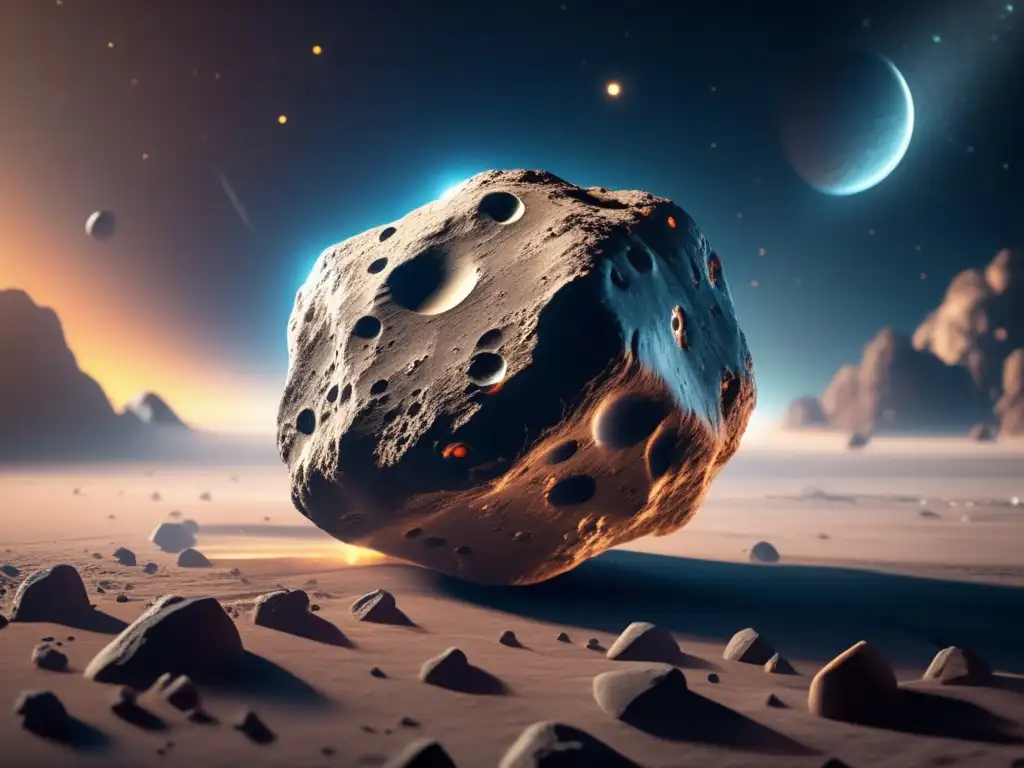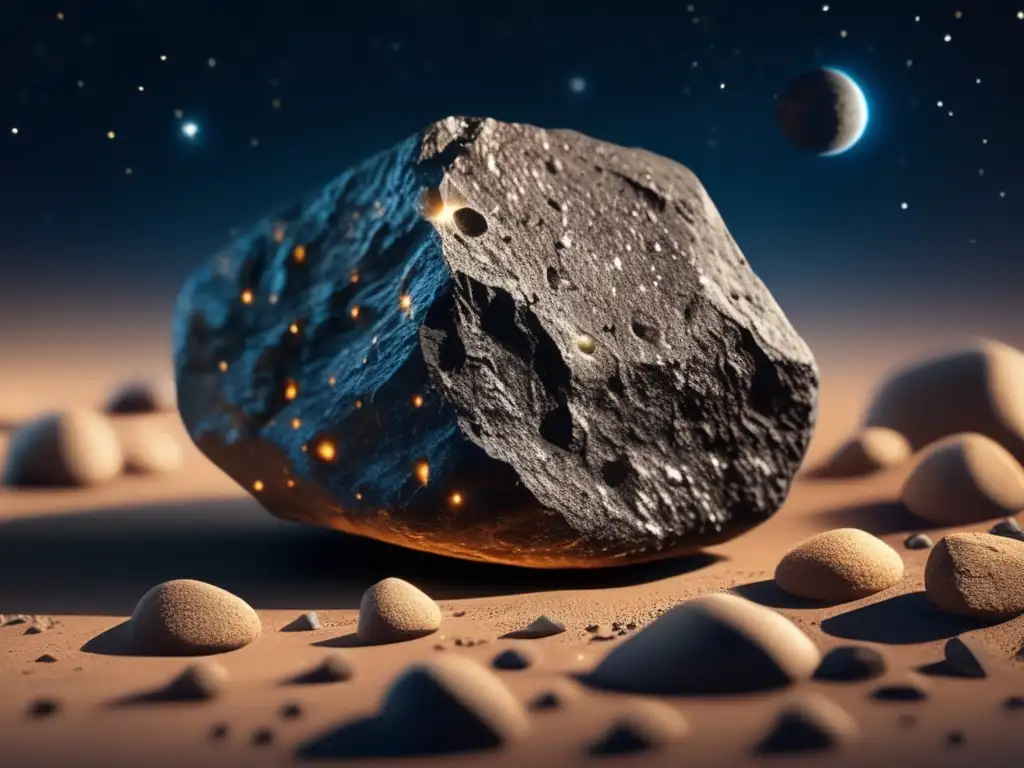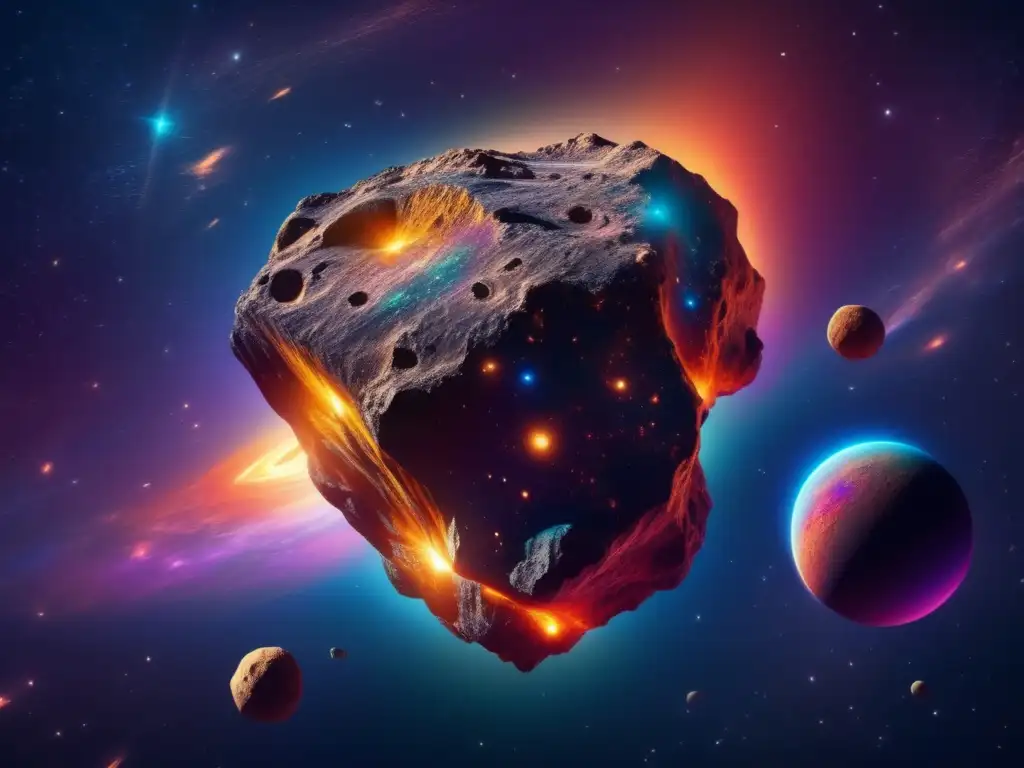The Unique Characteristics Of Asteroid Polypoetes

Introduction
Asteroids have long captured the curiosity and imagination of scientists and space enthusiasts alike. These celestial objects hold valuable information about the formation of our solar system and offer insights into the mysteries of space. One such intriguing asteroid is Polypoetes, which stands out for its unique characteristics and fascinating features. In this article, we will explore the distinct qualities of Asteroid Polypoetes and delve into its significance in our understanding of the cosmos.
The Discovery of Polypoetes

Polypoetes' Naming
Asteroid Polypoetes was discovered on March 19, 2001, by astronomers at the Sierra Nevada Observatory in Spain. It received its name from Greek mythology, where Polypoetes was a renowned warrior and king of the Arcadians. The name perfectly suits this asteroid's enigmatic nature and the questions it raises about our universe.
Orbit and Size
Polypoetes follows an elliptical orbit around the Sun, with an average distance of 344 million kilometers. It belongs to the Apollo group of asteroids, which means that its orbit intersects with Earth's. With a diameter of approximately 4 kilometers, Polypoetes falls into the category of medium-sized asteroids. Its size allows scientific observations and measurements to be made more accurately.
Composition and Surface
Studies suggest that Polypoetes is mainly composed of silicate minerals, such as pyroxene and olivine, similar to other asteroids in its class. However, what sets Polypoetes apart is its surface composition, which exhibits a higher concentration of carbonaceous compounds. This presence of organics makes Polypoetes a particularly interesting target for future exploration and scientific research.
Polypoetes' Role in Planetary Formation

Insights into the Early Solar System
By studying asteroids like Polypoetes, scientists gain valuable insights into the early stages of our solar system's formation. The high concentration of carbonaceous compounds found on Polypoetes suggests that it originated in the outer regions of the protoplanetary disk, where volatile-rich material was prevalent. This information helps refine our understanding of the processes that led to the creation of planets, including Earth.
Water and Organic Molecules
The presence of carbonaceous compounds on Polypoetes also raises questions about the potential existence of water and organic molecules. These substances are essential building blocks for life as we know it. By exploring asteroids like Polypoetes, scientists hope to uncover clues about the distribution of water and organic materials throughout the early solar system, shedding light on the possibility of life elsewhere in the universe.
The Future of Polypoetes Exploration

Mission Proposals
Given the unique characteristics and exciting prospects associated with Polypoetes, several space agencies and organizations have proposed missions to study this intriguing asteroid up close. These missions aim to collect samples from Polypoetes' surface, analyze its composition, and further our knowledge of the early solar system.
Technological Advancements
The advancement of technology plays a crucial role in enabling future exploration missions to asteroids like Polypoetes. Innovative spacecraft and robotic systems are being developed to navigate and interact with these celestial bodies, providing us with invaluable data and expanding our understanding of the cosmos.
Frequently Asked Questions

-
What is the significance of Polypoetes in our understanding of the solar system?
Polypoetes offers insights into the early stages of planetary formation and the distribution of water and organic molecules in the early solar system.
-
How was Polypoetes named?
Polypoetes was named after a warrior and king from Greek mythology, symbolizing its enigmatic nature.
-
Why is Polypoetes considered an interesting target for exploration?
Polypoetes' higher concentration of carbonaceous compounds makes it an intriguing target for studying the distribution of organics in the early solar system.
-
Are there any proposed missions to explore Polypoetes?
Several mission proposals have been put forward to study Polypoetes up close and gather valuable data about its composition.
-
How does technology contribute to the exploration of asteroids like Polypoetes?
Technological advancements enable the development of spacecraft and robotic systems capable of navigating and interacting with asteroids, expanding our knowledge of the cosmos.
Conclusion
Polypoetes stands out among asteroids for its unique characteristics and the valuable information it provides about the formation of our solar system. Through its composition, surface features, and orbit, Polypoetes offers valuable insights into the early stages of planetary formation and the potential for the existence of water and organic molecules. As technology advances, future exploration missions to Polypoetes and other asteroids promise to unveil more secrets about our universe. By continuing to study and explore these celestial objects, we move closer to unraveling the mysteries of our cosmic origins.
Join the discussion at www.asteroidrealm.com to share your thoughts and engage with other space enthusiasts. Subscribe to our newsletter for the latest updates, and don't forget to spread the knowledge by sharing this article on social networks. Thank you for joining us on this journey through the fascinating world of asteroids!
Additional Resources

For additional information about asteroids and their significance, check out the following resources:
- NASA's Asteroid Exploration Program
- European Space Agency's Asteroid Research
- Asteroid Realm's Articles on Asteroids
 Unraveling The Secrets Of Asteroid Leitus
Unraveling The Secrets Of Asteroid Leitus The Tale Of Asteroid Thoas
The Tale Of Asteroid Thoas The Mysteries Of Asteroid Idomeneus
The Mysteries Of Asteroid IdomeneusIf you want to discover more articles similar to The Unique Characteristics Of Asteroid Polypoetes, you can visit the Asteroid Profiles category.
Leave a Reply

Articulos relacionados: